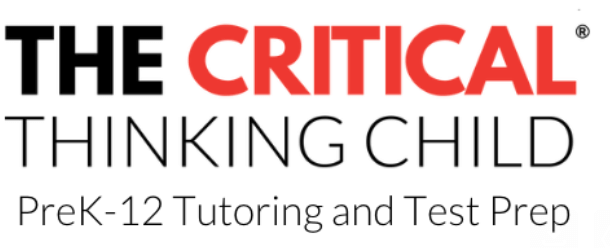In August 2019, New York City Mayor Bill de Blasio released a proposal that would eliminate gifted programs in all of New York City’s public elementary schools and gradually phase out the current middle and high school selective enrollment programs. This proposal has caused a great deal of controversy in New York City and beyond.
Here we’ll go over the reasoning behind the proposal as well as the Critical Thinking Child’s perspective on this issue.
Why New York City is considering the elimination of gifted and talented programs
Currently, rising kindergarten students in New York City are screened with a standardized test and placed into a kindergarten classroom and school accordingly. This practice has historically led to deeply segregated schools in New York City; an NBC article cites the statistic that black and Latinx students make up 65% of kindergarten students but only 18% of students in gifted programs.
After elementary school, students have the option of being admitted into a selective enrollment schools. To qualify, students have to pass a test and be admitted (about 1 in 5 schools are selective enrollment). The proposal to eliminate gifted programming is Mayor de Blasio’s response to the current system and its segregating effects. Instead of gifted programs, the proposal suggests investing in magnet schools and enrichment programs that would rely much less on a single standardized test.
Access to gifted and talented programs is more important than ever
Parents and students within these programs are worried that they’ll have the rug pulled out from underneath them. Children — especially diverse populations — need access to programs that provide opportunities for academic growth.
That’s not to say there aren’t problems with the numbers. New York City is just one example of how children of color or lower socioeconomic means often find it disproportionately difficult to enter gifted and talented programs.
But it’s also true that these students have the strongest need for academic enrichment. Instead of closing programs geared towards gifted students, why not make them more readily accessible? Why not provide additional resources and programming to parents and teachers that allow these students to prepare for a gifted environment?
This is a complex issue, and The Critical Thinking Child believes that eliminating gifted programs altogether is an oversimplified solution that doesn’t solve the problem. Instead, it’s akin to sweeping the issue under the rug and pretending it never existed. As The Conversation points out, reform is a stronger alternative to disbanding these programs.
At the end of the day, we as parents might not have a choice in what happens to gifted programs in our neighborhood. You may already live in an area with restricted access and limited enrichment opportunities.
But that doesn’t mean you can’t provide your child with the tools they need to develop strong analytical learning skills and become lifelong learners.
What you, as a parent, can do to support your gifted child
Working hard to get your child into a selective enrollment school, only to see these schools and programs eliminated, can be disappointing and scary. But at the end of the day, a gifted and talented program is one marker of academic potential. It’s a carrot that we chase, just like high grades, Ivy league schools, and academic awards.
While it’s helpful to have markers of success, your child’s academic potential doesn’t depend on them. It’s something you have control over and can nurture at home, regardless of what your school does or does not offer. You can’t necessarily control what programs exist, but you can control how you prepare your child to think critically, solve problems, and love learning.
Here at the Critical Thinking Child, we serve diverse students from a wide array of backgrounds and experiences. We know that whether a gifted program exists or not, you as parents have a high expectation of academic excellence for your children. Outside of gifted programs at school, there are plenty of tools you can use at home to help your child succeed.
We suggest taking time to nurture your child’s education regardless of what academic opportunities are available. Analytical thinking skills, creativity, and problem-solving don’t require a gifted program — you can help your child develop them right at home.
Here’s how to nurture your child’s curiosity and love of learning:
-
- Provide your child with rich out of school experiences like trips to museums, libraries, and zoos.
- Learn about your child’s interests and follow them; if your child is interested in food and cooking, take a cooking class or learn to grow your own vegetables. If your child is interested in rocks and geology, go on a rock hunt and start a rock collection.
- Monitor your child’s academic success as they go through school.
- Develop strong study habits that will help your child focus, take risks, and develop confidence.
- Focus on SMART Skills that apply across subject areas.
How to keep your child on track for academic success
As parents, we want what’s best for our children. If you’re ready to help your child succeed, it’s worth taking the time to build a solid foundation. That way, regardless of the programming a school offers, your child has the tools they need to succeed.
Instead of asking ourselves what needs to happen to get a child into a selective program, let’s try a new question. Let’s ask, “What do we need to do to make sure our child is on track for academic excellence?”
If the answers lead to a gifted and talented program, that’s wonderful. If they lead to nurturing curiosity in a topic that your child may have otherwise overlooked, that’s also worth celebrating. Gifted and talented programs only last as long as your child is in school (or until the programs are eliminated), but a love of learning and the ability to think critically will last your child a lifetime.
To start building a strong foundation for your child, click here
Sources:
NBC News, “Can Axing Gifted Programs Desegregate New York Schools Without Triggering Bright Flight?”
The New York Times, “The Plan to Scrap New York’s Gifted Programs: 5 Takeaways”



